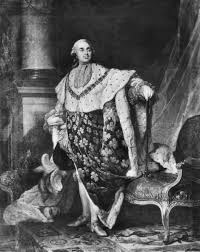- Books Name
- Learn with me Social Science Book
- Publication
- Learn with me publication
- Course
- CBSE Class 9
- Subject
- Social Science
The Abolition of Slavery
- The most revolutionary social reforms of the Jacobin regime was the abolition of slavery in the French colonies.
- Reluctance of Europeans to go and work in distant and unfamiliar lands meant a shortage of labour on the plantations.
- This was met by a triangular slave trade between Europe, Africa and the Americas.
- The slave trade began in the seventeenth century.
- The slaves were packed tightly into ships for the three-month long voyage across the Atlantic to the Caribbean. There they were sold to plantation owners.
- Port cities like Bordeaux and Nantes owed their economic prosperity to the flourishing slave trade.
- It was finally the Convention which in 1794 legislated to free all slaves in the French overseas possessions.
- Ten years later, Napoleon reintroduced slavery. Plantation owners understood their freedom as including the right to enslave African Negroes in pursuit of their economic interests.
- Slavery was finally abolished in French colonies in 1848.
The Revolution and Everyday Life
- The years following 1789 in France saw many changes in the lives of men, women, and children.
- The revolutionary governments took it upon themselves to pass laws that would translate the ideals of liberty and equality into everyday practice.
- One important law that came into effect was the abolition of censorship.
- Now the Declaration of the Rights of Man and Citizen proclaimed freedom of speech and expression to be a natural right.
- Newspapers, pamphlets, books and printed pictures flooded the towns of France from where they travelled rapidly into the countryside.
- Freedom of the press also meant that opposing views of events could be expressed.
- The ideas of liberty and democratic rights were the most important legacy of the French Revolution. These spread from France to the rest of Europe during the 19th century.
Napoleon

- In 1804, Napoleon crowned himself emperor of France.
- He set out to conquer neighboring European countries, dispossessing dynasties and creating kingdoms where he placed members of his family.
- He saw his role as a modernizer of Europe.
- He introduced many laws (the protection of private property and a uniform system of weights and measures provided by the decimal system).
- He was finally, defeated at Waterloo in 1815.

 Learn with me publication
Learn with me publication
